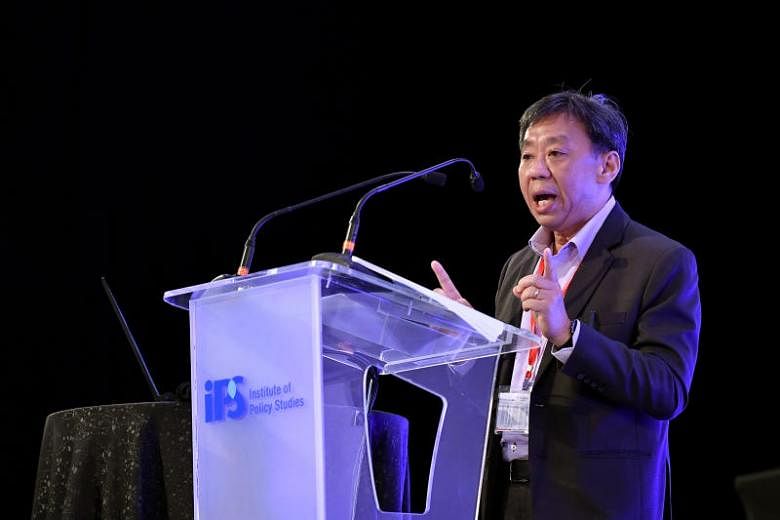SINGAPORE - Without the arrest of left-wing forces in Singapore in 1963, its merger with Malaya, Sabah and Sarawak to form the Federation of Malaysia would not have happened, said historian Tan Tai Yong on Tuesday (Oct 1).
The first prime minister of Malaya and later Malaysia, Tunku Abdul Rahman, was worried about Singapore becoming a communist "Cuba in his backyard" and so had made the arrests a "non-negotiable" condition of Singapore's entry into the federation, said Professor Tan, adding that the People's Action Party (PAP) might have lost power and not exist today if the merger had not taken place.
"It's very easy now with hindsight to say that this should not have been done, but when people were making decisions in 1963, or 1962, or 1961, they were faced with stark options and had to decide which was the best option to take," he said.
"This was a very fundamental decision on what the future of Singapore should look like: a left-leaning communist or socialist kind of model, or one that is open to connecting with the rest of the world, one that is prepared to be part of a larger federation embracing Malaysian identity."
Prof Tan, who is also the president of Yale-NUS College, was speaking at a panel discussion on the lasting impacts of decolonisation on Singapore, on the final day of the two-day Singapore Bicentennial Conference.
He said Singapore's merger with Malaysia and subsequent separation was one major example of contesting visions and ideas in Singapore's history on what decolonisation should entail.
Ultimately, the decision to go ahead with the merger was a coming together of different interests that overlapped.
This included the political interests of the PAP led by Singapore's first prime minister Lee Kuan Yew, which was facing a "formidable foe" in the form of the left-wing Barisan Sosialis, and the interests of the Tunku and the British leaders, who wanted to contain the spread of communism, Prof Tan said.
The panel discussion, on the topic of contestations and choices, was moderated by Mr Ho Kwon Ping, executive chairman of Banyan Tree Holdings, who said the "great contest of ideas" continues today, and that understanding the past can help one to better understand how to discuss the future.
The story that most Singaporeans know of the Republic's separation from Malaysia - that it came as a shock, suddenly and unexpectedly - is probably not historically accurate, said Prof Tan.
"The truth, which has surfaced because we now have access to new materials, is that from early 1964, there were members of the Singapore Cabinet who had already decided that it was not working," he added.
In response to a question on whether Singapore can do more to acknowledge the legacy of left-wing politics, Prof Tan said history and history writing both change with time.
"The national narrative that many of us grew up understanding is not sufficient anymore. History is more complex than that and as more research happens, we will see a more nuanced approach."
"Some people have asked me if I agree with revisionist history. All historians are revisionists. That's what we do with new interpretations and new materials. We revise, but do it responsibly and with intellectual honesty."
Also on the panel was Princeton University history professor Gyan Prakash, who spoke more broadly about the lasting global effects of decolonisation, which produced a "fundamental restructuring of the world", including the rise of the nation state as the dominant basis for understanding identity and rights.


